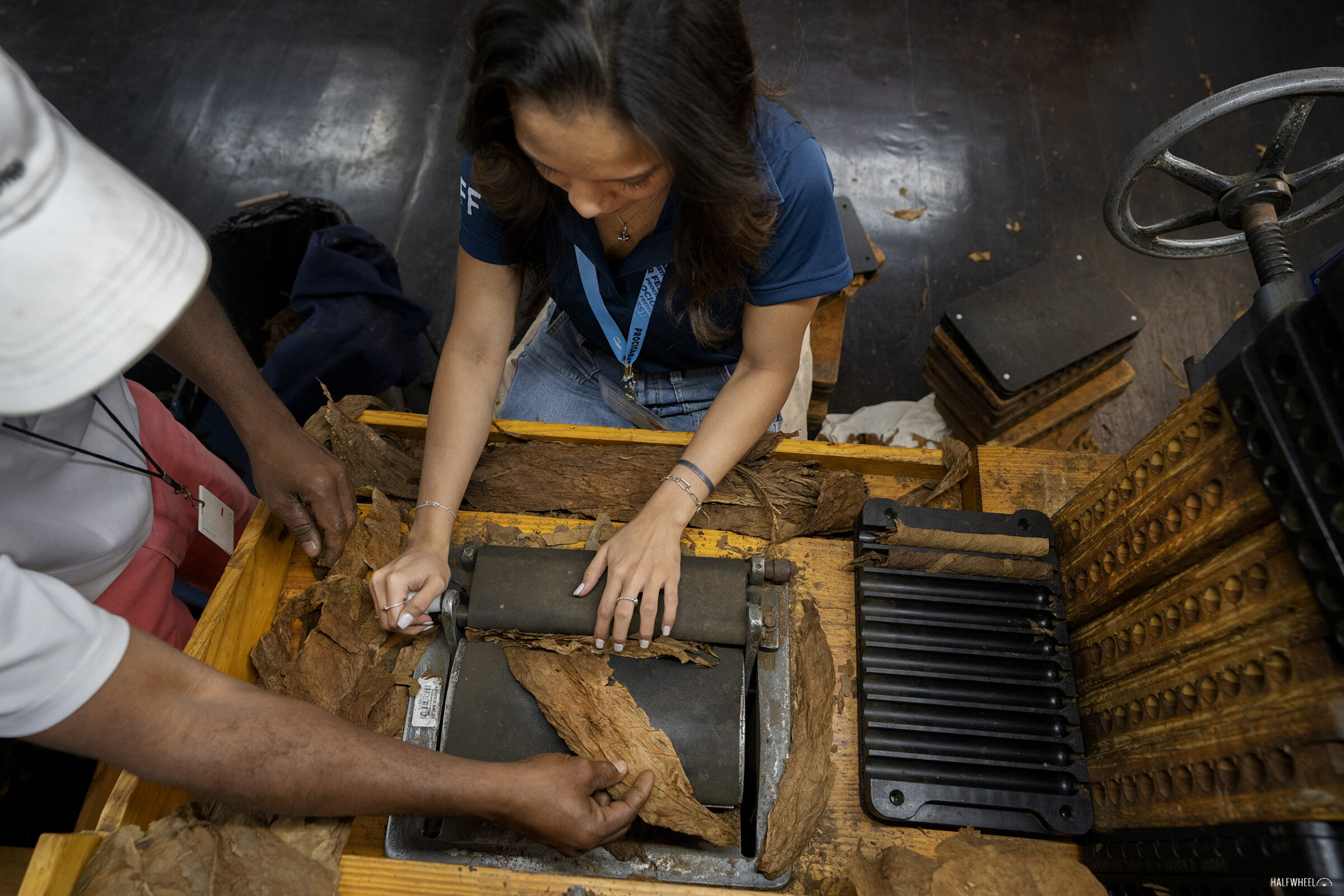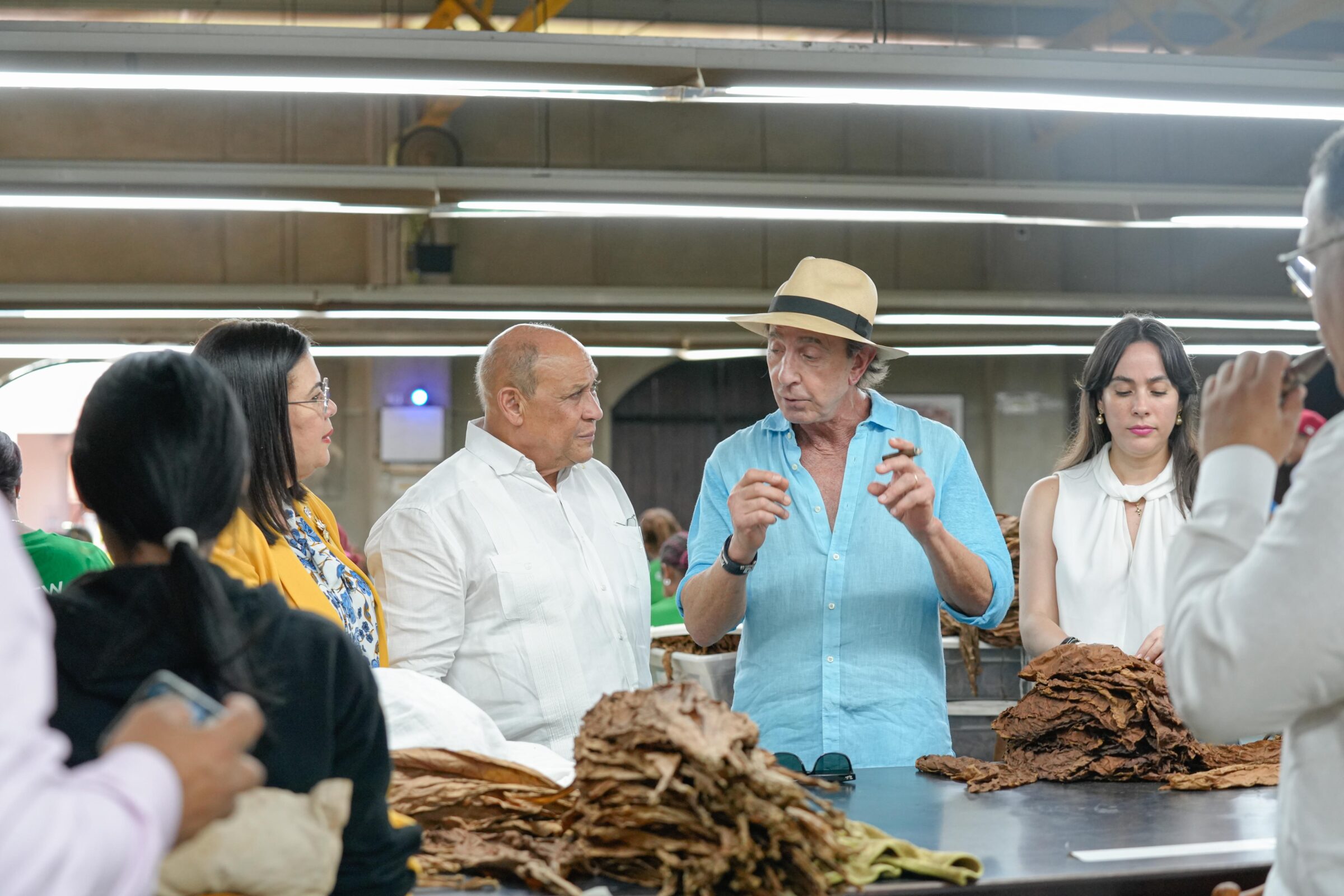In an effort to deal with a serious shortage of cigar rollers and bunchers, Procigar—the Dominican Republic’s leading trade organization of cigar manufacturers—and the Instituto Nacional de Formación Técnico Profesional (INFOTEP)—a Dominican government agency—have partnered to create a new vocational school that will train adults to work in cigar factories.
Its first class is underway this month, a three-month training program that will train people to work as cigar rollers or bunchers. Classes are being offered twice daily—once during the day and once at night to accommodate those who work during the day—in Tamboril, an area of Santiago that is home to dozens of cigar factories. Litto Gomez, co-founder of La Flor Dominicana and president of Procigar, told halfwheel that he expects the first class to contain 40 graduates.
Rafael Santos Badía (Left), general director of INFOTEP, and Litto Gomez (Right)
While Procigar worked with INFOTEP to get the program started, graduates will be free to work at any factory they’d like. Gomez told halfwheel that information about various cigar factories and who to contact would be given to all students, who can then interview for positions that interest them. Graduates will have a certificate from INFOTEP, which should make it easy for them to find work and start quickly, especially given the shortage of rollers and bunchers in the Dominican Republic.
The school will do much more than just train rollers and bunchers. In January, it will have its first class of students training for jobs in pre-industry, the part of the cigar-making process that involves the curing and preparing of the tobacco to be rolled. After that, the next step could be to add a program where existing rollers and bunchers can train to become supervisors. Like with the bunchers and rollers, graduates have any INFOTEP program get a certificate.
All of this is offered to the workers for free. INFOTEP is funded by the government through a 1 percent tax on payroll and other initiatives. Gomez told halfwheel that cigar factories have been one of the largest contributors to INFOTEP’s budgets but have not had a dedicated program like this before. He credited INFOTEP for being incredibly responsive once Procigar made it clear that they were in need of trained workers, working quickly to find a suitable building to establish the school.




